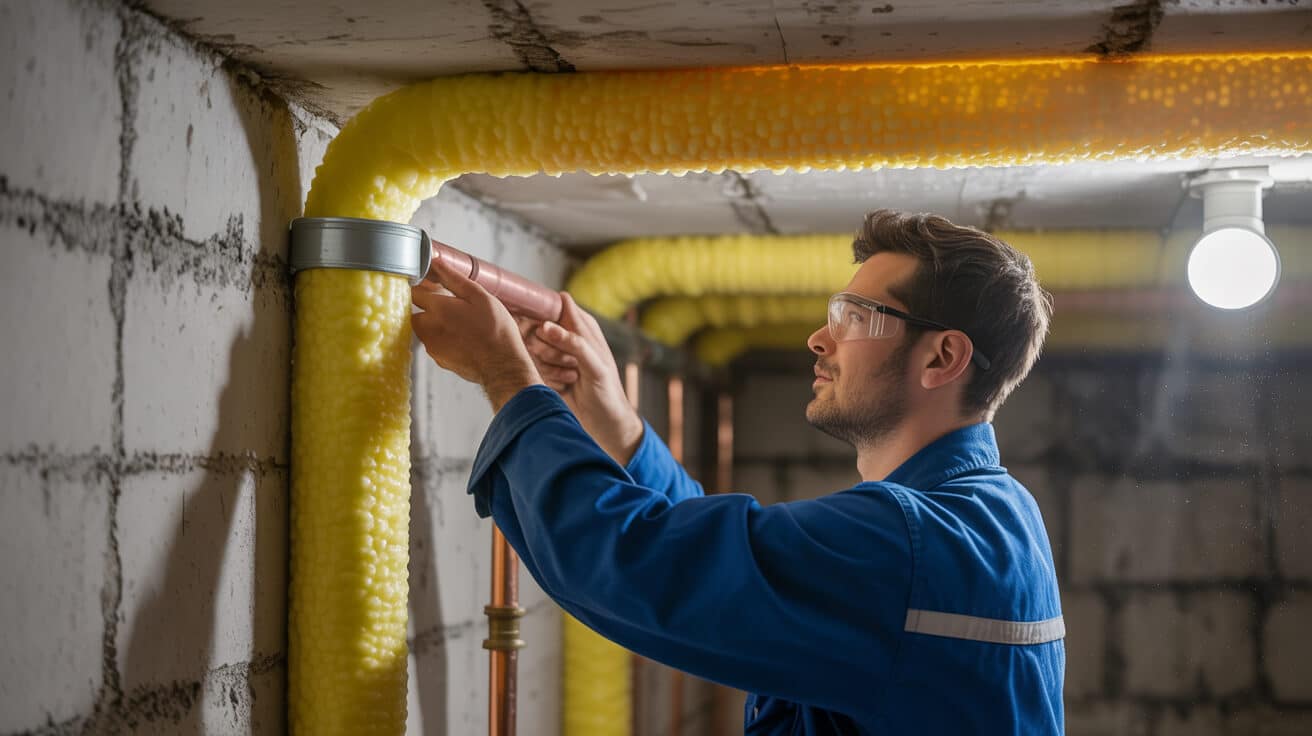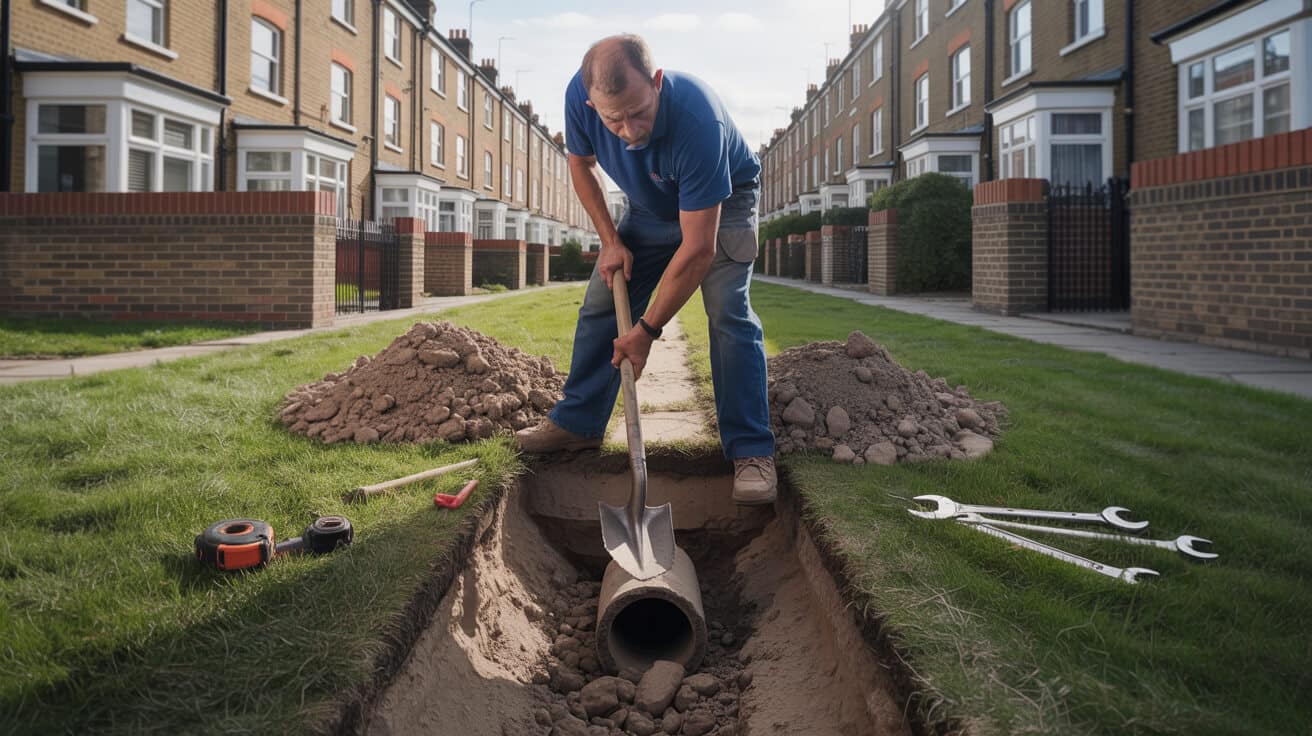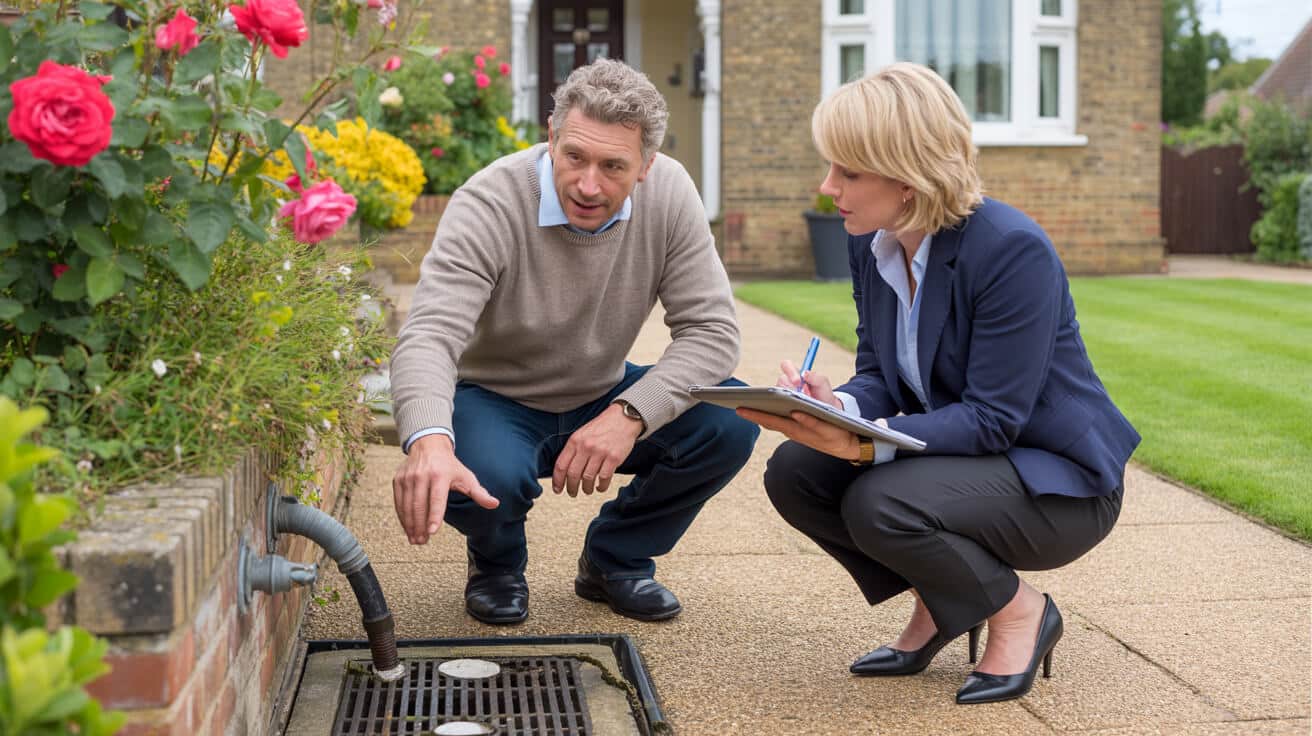 Understanding The Boiler Upgrade Scheme
Understanding The Boiler Upgrade Scheme

Why Does the Boiler Upgrade Scheme Actually Cut the Excuses—and Should You Trust It?
Boiler grants have disappointed too many property owners with promise fatigue. Long forms, slow rebates, or rules that change just as you reach for the finish line have made many schemes feel like chores. The Boiler Upgrade Scheme (BUS) resets the narrative for homeowners, landlords, letting agents, managers, and commercial owners—offering upfront, automatic discounts worth £7,500 for heat pumps and £5,000 for rural biomass, applied before you ever see an invoice. There’s no wait-and-hope for rebates. No loan dressed up as “support.” No shell game with closing dates or budget vanishing acts.
Paperwork should save you money—not cost you months of circles and stress.
Qualify, and the headline grant comes straight off your bill. If you own a building in England or Wales—private, rental, or commercial—just bring a valid EPC and a certified installer, and most of the admin happens behind the scenes. That’s a milestone for all the landlords, block managers, and authorities who’ve wrestled past “exclusive” incentives built for someone else.
Property folk are tired of feeling excluded or like the queue always resets. BUS is different: straight eligibility and fast “yes/no” outcomes let you control timing, budget, and next steps.
Is the Boiler Upgrade Scheme Really Open to Every Property Owner?

Many have memorised the pattern: tick ten boxes, then a magic eleventh wipes out your eligibility. BUS has bucked the trend by making the owner, not the occupier, the gatekeeper. Own a domestic or qualifying commercial property in England or Wales? You’re most of the way there if you use gas, oil, LPG, or direct-electric heat.
- Landlords, letting agents: You’re not just allowed—you’re expected to use this for EPC-driven upgrades and future rental law compliance.
- Portfolio and block managers: Cut through red tape. Instead of juggling five micro-schemes, make one big leap in compliance or tenant comfort.
- Business owners, councils, local authorities: You get access to the same discounts. No postcode lottery except for rural-only biomass systems.
What’s the real acid test? Ownership, EPC, and heating type. Leaseholders need sign-off. Private rentals need the property manager or landlord on the paperwork. All applicants need an EPC less than 10 years old—that’s the one irreplaceable ticket.
If your insulation isn’t up to par, the EPC flags it and the BUS pauses. No gaming the system, no loopholes. In Scotland or Northern Ireland? You’ll be routed to a different support stream, not left in the dark (Home Energy Scotland, 2024).
Don’t get tripped by paperwork: the smoothest BUS upgrades belong to those who fix documentation before shopping for a quote.
Big landlords improve MEES ratings; commercial owners future-proof against fuel swings and policy changes. For the first time, a boiler upgrade “handout” serves everyone, not just the loudest campaigners.
How Much Does BUS Really Save—And Will You Feel It Year After Year?

Forget “rebate maths” and hidden shortfalls. With BUS, the decision is raw and simple: the grant is chopped off your installer’s bill, full-stop. So how deep is the discount?
- Air Source Heat Pumps: BUS brings typical owner costs down to roughly £5,000–£7,000—for a system that, just two years ago, would have cost up to double that.
- Ground Source Heat Pumps: These are major systems, but you’ll usually only see £12,500–£15,000 out-of-pocket in big or rural homes.
- Biomass Boilers (rural-only): Still not cheap, but the £5,000 grant drops rural instals into the £9,000–£12,000 window.
Ongoing, these upgrades don’t just tick the compliance box—they often save £200–£500 per year versus legacy gas or oil, with the added bonus of comfort, resale value, and lower maintenance bills (Energy Saving Trust, 2024).
The real risk is delay—not cost. Funding levels and installer calendars change. Beat the rush, lock in the rules, and own the savings.
Here’s the breakdown at a glance:
| System | BUS Grant | Est. Owner Cost | Who Gains Most |
|---|---|---|---|
| Air Source Heat Pump | £7,500 | £5–7k | 90% of homes/flats |
| Ground Source Heat Pump | £7,500 | £12.5–15k | Rural, off-grid, large plots |
| Biomass (rural only) | £5,000 | £9–12k | No mains gas, rural homes |
Move first and you insulate both your costs and your eligibility—grants change. Installer slots fill. For seasoned property players, inaction is often the most expensive line on the balance sheet.
Which Heating Systems Do BUS Actually Fund—and Where Does Property Fit Come In?

Just being “green” or “keen to invest” won’t score you a BUS grant. The system funds these only:
- Air Source Heat Pumps: The all-rounder for UK homes; works best for modern construction or solid insulation.
- Ground Source Heat Pumps: For those with room for trenches or boreholes—outsize cost, outsize savings, outsize scope.
- Biomass Boilers: Strictly for rural, non-gas homes and only after passing emissions checks; a lifeline for properties fuel-shy or grid-remote.
The property itself still calls the shots:
- Your EPC rules first.: If your insulation isn’t up to snuff, upgrade before you dream of heat pumps.
- Radiators, pipework, and cylinder: All must match the lower-flow logic of heat pumps.
- Smart controls and zoning: Not a luxury, but an occasional must—these often tip the EPC or comfort scales.
- Final site survey: MCS installers map your needs and flag hiccups—your “fit-or-flop” moment.
It’s never about chasing the biggest grant cheque—the only question is: will the new system heat your life without headaches?
The survey-first, tweak-later approach ensures the “paper savings” are real, and no one burns cash on a system destined to underperform. Don’t sign contracts until every pipe and wire matches both BUS and your building.
Why Do Most BUS Applications Stall—And How Do You Beat the System?

Technique isn’t the holdup; it’s always paperwork (or insulation avoidance) that trips the BUS race:
- Outdated or expired EPC: Has to be current and actionable. Any flagged insulation “must fix” before funds release.
- Unresolved insulation items: BUS goes nowhere unless the EPC says “no further improvements” or you’re a documented exception.
- Paper trails: Receipts, consents, digital records—every hurdle must be in the right hands before the installation begins.
- Insulation costs: These are not always “granted” internally—budget £500 to £2,500, and count them upfront *(Ofgem 2024)*.
Fastest funds, quick installations, and zero snags all start (and end) with documents prepped, scanned, and ready to fly.
Miss a detail? BUS lets you fix, resubmit, and go again—but every delay is a chance for quotas or budgets to move. Those who check documents first, win first.
Why Your Installer’s Credentials Decide Your Grant Fate

No reputable installer = No BUS grant. That’s the deal. Every claimed upgrade must be fully MCS certified, from system design to final testing. No shortcuts. No “friend of a friend.” And the claim paperwork? Your installer handles beginning to end—no missing steps.
Why should you care?
- EPCs, insulation, and design all reviewed before work begins.: No wasted site trips or surprise charges.
- All document management handled.: Nothing falls through a paperwork crack.
- Instal brands like Plumbers 4U—double up on compliance, using WRAS, G3, WaterSafe: —so letting agents, buyers, and surveyors see genuine quality, not a DIY patch.
Too many projects fail in the paperwork—not the pipework. Accredited teams protect both your funds and your future sale value.
A tight team ensures what’s signed off is logged, certified, and ready for any litigation, resale, or regulatory challenge.
How Plumbers 4U Makes BUS Turnkey—For Individuals, Portfolios, or Public Estates

Smart property owners don’t just chase discounts—they want a confident, repeatable process. Plumbers 4U makes the BUS one of the few grants that “just works” for every sector.
- Instant pre-check: Online or over the phone, you know your eligibility within minutes—no time wasted on hope.
- EPC and insulation handled in-house: Direct relationships with trusted local assessors, upgrades coordinated for a smooth BUS journey.
- Flat-fee quoting: No upcharges or “wait-and-see” maths; every cost specified upfront.
- Full grant admin managed: Plumbers 4U handles Ofgem paperwork, proof gathering, and all compliance verification from start to finish.
- Completion packs digitised: Invoices, certificates, and warranties—ready for estate agents, lenders, or tenants.
- Post-instal reminders and aftercare: For every home, block, or commercial site—compliance maintained, value protected.
- Real feedback: Third-party review verification trumps bland sales lines—what’s been delivered, not just promised *(TrustPilot)*.
The best results come from process ownership—a joined-up chain from first contact to last service reminder.
Act before funding or rule shifts change the game. The firms who “wait and see” miss the window, while those who pre-check and prep glide through.
Can You Map the BUS Journey—And Know Each Step Will Be Handled?

A no-nonsense view of your BUS workflow:
| System Type | BUS Grant | Net Owner Cost | Key Criteria |
|---|---|---|---|
| Air Source Heat Pump | £7,500 | £5-7k | Owner, insulation/EPC, replace old heat |
| Ground Source HP | £7,500 | £12.5-15k | Owner, space for ground works, insulation |
| Biomass (rural only) | £5,000 | £9-12k | Rural, off-gas, meets emissions rules |
Step-by-step approach:
- Confirm eligibility: MCS-qualified installer checks property and heating system.
- Validate EPC: Flag and fix insulation before moving to quotes.
- Prep paperwork: All forms, consents, and evidence collected upfront.
- Book instal slot: BUS discount applied direct to the invoice—no after-the-fact rebate delays.
- Completion pack delivered: Digital PDFs for compliance, warranty, and estate agent or lender.
- Aftercare scheduled: Built-in reminders for annual service, helping you keep every asset “sale-ready.”
Every minute you invest in paperwork saves a week in admin chases and contractor callbacks.
Process matters. The right team pushes every task through, with no gaps between compliance and comfort.
Why Success Isn’t an Accident—And How to Sidestep Common Grant Traps
Hustle means nothing if paperwork, compliance, or installer skills are missing from day one.
Plumbers 4U lines up the entire journey:
- Upfront, accurate checks: No wasted time or surprise gaps.
- Absolute paperwork control: Every requirement flagged, tracked, signed, and logged for you.
- No punted “grey areas”: Problems with insulation, EPC, or requirements are solved head-on or the job isn’t booked.
- Universal compliance: All jobs certified to WRAS, MCS, G3, and WaterSafe standard—protecting asset and future trading.
- Centralised documentation: For easy resale, tenancy, or banking.
Across a portfolio, you don’t just want a job done—you want a record to back it at audit, sale, or tenancy renewal. Cutting out every paperwork, instal, or compliance unknown is how real property value is built.
You can’t shortcut a system designed for proof. Go with the team that owns both process and promise.
If the documents are right, the system is checked, and the installer cares as much as the client, BUS upgrades turn into bragging rights, not battle scars.
Get This Year’s Grant—And Secure Your Asset for Good
You’re here because avoiding chaos, waste, or risk actually means something. That’s why every BUS job at Plumbers 4U starts with “proof first, plumbing second”: EPC, insulation, documentation—all verified and ready before gears turn. Half the future is what you don’t risk: waiting for next year’s funding, hoping for sudden policy luck, or betting on “DIY” savings that turn into months of repair.
Book your BUS pre-check or assessment with Plumbers 4U now.
Accredited engineers handle everything—EPC, insulation, document prep, Ofgem paperwork, benchmark logs, service reminders—and you see every grant saving on the invoice before the work even starts.
The smartest property owner treats EPCs, insulation, and paperwork like main valves: get them right at the start, and heating upgrades are as stress-free as turning on a tap.
🚰
Every BUS property check with me always starts at the EPC and insulation report. Miss those, and you’ll wait weeks—or lose out altogether. I measure up the system properly: flow rate, cylinder spec, and zoning. Since 2024, terrace and semi-detached homes see even easier BUS access—provided your paperwork is ready and your installer is accredited. Always use teams with MCS, WRAS, and G3 for compliance, keep your Benchmark logbook updated, and you’ll be ready for any future audit or sale.
🚰
Frequently Asked Questions
Who genuinely qualifies for the Boiler Upgrade Scheme (BUS) in 2024—what’s behind the confusion for landlords and commercial holders?
The 2024 Boiler Upgrade Scheme opens up to most residential and commercial premises in England and Wales, but eligibility demands more than simply owning a property with old heating. To qualify, your asset—whether it’s a single home, a block of flats, an office, or a managed shop under 1,000m²—must have a valid EPC from the last decade, all insulation recommendations completed (or exempted), and an existing fossil-fuel system. Flats, multi-unit sites, and mixed-use premises trigger extra paperwork: all freeholder and managing agent permissions must be verified upfront. Letting agents, landlords, commercial property companies, and even portfolio managers can now apply, but slipups on EPC age or missing insulation status cause the bulk of rejections.
Ownership structure matters less than proof: permissions, up-to-date paperwork, and insulation actions now define BUS access—whether you run a buy-to-let, an office portfolio, or a block with multiple leaseholders.
How does eligibility change for portfolios and commercial addresses in detail?
- Homes, flats, and managed residential blocks are in—if all consents are signed
- Offices, shops, small warehouses (<1000m²) can apply, provided they aren’t new-builds or social/council properties
- Landlord and agent portfolios: every property must pass EPC and insulation checks; bulk upgrades need block-wide permission
- Self-builds, conversions, and retrofits: reviewed under special rules
- Scotland and Northern Ireland use parallel schemes—different grant logic applies
BUS 2024 property inclusion summary
| Property Class | EPC Needed | Insulation Complete | Permission Key | Qualifies? |
|---|---|---|---|---|
| Owner/living in | Yes | Yes | Owner | Yes |
| Landlord/rental/leasehold block | Yes | Yes | Agent/freeholder | Yes |
| Office/shop (<1000m²) | Yes | Yes | Business owner/landlord | Yes |
| Social/council housing | Yes | Yes | Council/HA—usually not valid | No |
| New-build (not self-build) | Yes | Yes | Developer | No |
| Self-build/conversion | Yes | Yes | Owner | Yes (rules) |
A single missed exemption or absent consent letter instantly derails an otherwise eligible portfolio or commercial project. Prepping documents upfront flips “maybe” to “approved” nine times out of ten.
Which heat system swaps and upgrades actually receive BUS funding—and where do landlords most risk losing out?
BUS backs only three main upgrades: air source heat pumps (ASHP), ground source heat pumps (GSHP), and for rural, off-gas sites, modern biomass boilers passing emissions limits. Your installer must remove all fossil-fuel heating—hybrid solutions (like leaving a gas boiler “just in case”) are explicitly blocked. Every instal must go through a BUS-registered, MCS-accredited contractor, who leads the grant process and signs off compliance at every stage. For landlords and asset managers, especially those upgrading entire blocks or mixed-use premises, the technical requirement isn’t as demanding as the documentation chain: every flat, office, or unit needs its own compliance bundle.
BUS is ruthlessly procedural: your system, paperwork, and installer all have to be aligned. ‘Nearly compliant’ earns nothing; precision delivers maximum, up-front grant value.
BUS-Accepted Upgrade System Table
| Previous System | Eligible Upgrade | Required Extras/Restriction |
|---|---|---|
| Gas, oil, LPG, direct electric | ASHP, GSHP | Old system out, EPC <10yrs, full insulation |
| Old biomass (rural/off-gas) | Modern biomass | Only rural, must pass emission standards |
| Hybrid/part renewable | Not eligible | System separation, re-survey required |
MCS Installer: role in unlocking funds and avoiding audit failure
- Must handle all paperwork with Ofgem, BUS, and your EPC
- Only installers with MCS status and up-to-date registrations can submit for BUS grants
- For block/multi-unit, look for evidence of proven experience navigating agent permissions and resident/leaseholder communications
- Expect digital aftercare packs; certificates and warranties should always be collated for your asset/portfolio records
A landlord or property manager relying on a single “upgrade contractor” often stalls at submission—a BUS specialist provides not just technical, but regulatory and practical completion.
How do true scheme costs, energy savings, and payback compare for investors, property companies, and block managers?
With BUS support, installing an air or ground source heat pump now commonly costs between £5,000 and £7,000 (air) or £12,500–£15,000 (ground), after upfront grant deduction. Rural, off-grid developments using compliant biomass average £9,000–£12,000 post-grant. Factoring in EPC surveys (£60–£120), insulation upgrades (£500–£2,500), and possible main fuseboard or distribution tweaks brings the total spend into sharper relief for asset managers. However, BUS immediately cuts capital outlay—there’s no waiting for rebates or cash-back. Higher EPC ratings and full compliance now boost property value, lender interest, and future MEES scores.
Annual energy bill savings for typical homes and rentals range from £200 to £500+, with higher-use properties seeing payback in under eight years. Well-insulated or off-gas homes, and mixed-use blocks running older LPG or oil heating, see the quickest returns.
Act now, and you gain from up-front discounts, rising EPCs, and lower lifetime bills. Wait, and rising labour costs, stricter MEES, and quota limits bite back.
BUS scenario cost table—2024
| System Type | BUS Grant | Typical Owner/Investor Cost | Typical Use Case |
|---|---|---|---|
| Air Source Heat Pump | £7,500 | £5,000–£7,000 | Most owner-occupier/landlord blocks |
| Ground Source Heat Pump | £7,500 | £12,500–£15,000 | Rural/land-rich/commercial clusters |
| Rural biomass | £5,000 | £9,000–£12,000 | Off-gas, rural property/portfolio |
A credible BUS installer will detail these numbers line by line and account for planning, insulation, compliance, and grant deduction before you sign.
What documentation, permissions, or process gaps most commonly block BUS outcomes for portfolios or mixed-use premises?
The #1 cause of BUS rejection is documentation lag—typically, an EPC that’s expired, insulation upgrades still “pending,” or missing consent from managing agents, leaseholders, or freeholders. Each property or block requires upfront, signed-off paperwork (permissions, consent letters, completed insulation) before your installer applies for the grant. Portfolio upgrades, even with identical units, must treat every address as a standalone grant file—no “bulk” shortcut. Owners handling this paperwork before inviting quotes consistently see approval first time.
Compliance isn’t a guessing game—it’s knowing the EPC status and insulation proof for every property you manage, before the installer wheels in any equipment.
BUS paperwork essentials for fast, frictionless approval
- Valid EPC (last 10 years) for every asset addressed
- All EPC insulation recommendations completed or furnished with written exemption (pipe insulation, cavity fill, loft top-up, etc)
- Signed freeholder/agent consent for flats, blocks, leaseholds, and managed commercial premises
- All grant and installer forms digitally signed (BUS is heavily digital in 2024)
- Digital aftercare records collated and accessible for audits or MEES reviews
Staying audit-ready means treating paperwork as an operational workflow—files complete, digitally stored, and backed up before your installer submits anything to Ofgem.
Why is installer selection more critical than ever for landlords, agents, and institutional owners wanting BUS certainty?
The 2024 BUS process, with its tighter paperwork and digital audit trails, rewards asset owners who partner with MCS-accredited, BUS-experienced specialists from day one. These contractors take legal and practical responsibility for verifying your EPC, managing insulation jobs, collating permissions, and handling full Ofgem submission. Reputable installers always display prior block/portfolio credentials, WRAS/G3 certifications, and provide transparent, itemised quotations with the grant deducted upfront.
For owners, commercial managers, or agents, the right installer is a compliance anchor: they submit, certify, and finalise every job so you can demonstrate asset improvements to lenders, regulators, and insurance.
| Installer checklist for BUS confidence | |
|---|---|
| MCS/BUS status & WRAS/G3 up to date | |
| Multi-site/block portfolio references | |
| End-to-end aftercare pack provided (docs/certs/warranties) | |
| Full digital paperwork management | |
| Upfront grant deduction, no ambiguous final invoices |
Portfolio owners who treat installer vetting with the same rigour as an audit secure not just upgrades, but the confidence to meet future MEES and compliance standards without panic.
What’s different in BUS and asset upgrade strategy for 2024—and how do early adopters win as the landscape shifts?
The biggest changes in BUS for 2024—the universal £7,500 heat pump funding, expanded block and flat permissions, and digital-first processing—make early action a tactical necessity for asset managers. Grant funding is capped, with quotas and “first come, first served” rules. Owners and landlords who prepare documentation and partner early with seasoned BUS installers guarantee funding allocation, schedule jobs on their terms, and acquire competitive EPC and MEES leverage. For institutional property teams, using BUS now enables capital upgrades and forward lending or resale protection in one move.
| BUS 2024 Key Policy Shifts and Owner Takeaways |
|---|
| One fixed £7,500 for both air and ground heat pumps |
| Block, portfolio, and flat process streamlined (digital, easier consents) |
| Rural biomass: stricter, capped, for off-gas only |
| Grant quotas, installer slots—priority to prepared applicants |
| Audit, lender, and MEES compliance getting tougher |
Waiting for certainty is the costliest mistake—regulations will always catch up, but early BUS users dictate their upgrade terms and future lending options.
For teams managing portfolios, blocks, or commercial assets, planning ahead—especially with compliance-ready contractors—makes BUS less an incentive and more an operational advantage.
How does Plumbers 4U give landlords, agents, and property managers the decisive edge from BUS approval to completed upgrade?
Plumbers 4U isn’t just a contractor—it’s a compliance and asset-upgrade partner built for the needs of landlords, blocks, agents, and commercial estates.
- Obtain a rapid digital property audit and grant eligibility check, covering multiple addresses or asset types in one move
- Arrange EPC survey, insulation upgrades, and all pre-grant compliance works in-house if needed
- Every step—EPC, insulation remedy, permission collection, grant submission, installer process, aftercare—is delivered, tracked, and documented for you
- Receive transparent, upfront quotations, with BUS savings reflected on the invoice—no “hidden” or post-completion surprises
- Access digital aftercare packs, including compliance documentation, renewal reminders, and asset histories to support audits, lending, and MEES evidence
A BUS installation shouldn’t just heat your property—it should cold-proof your compliance for five years and beyond. Plumbers 4U runs the whole marathon, not just the first lap.
Book a portfolio-wide assessment or eligibility check with Plumbers 4U now—and ensure your assets, blocks, and compliance records move forward while funding windows and lending advantages are still wide open.



